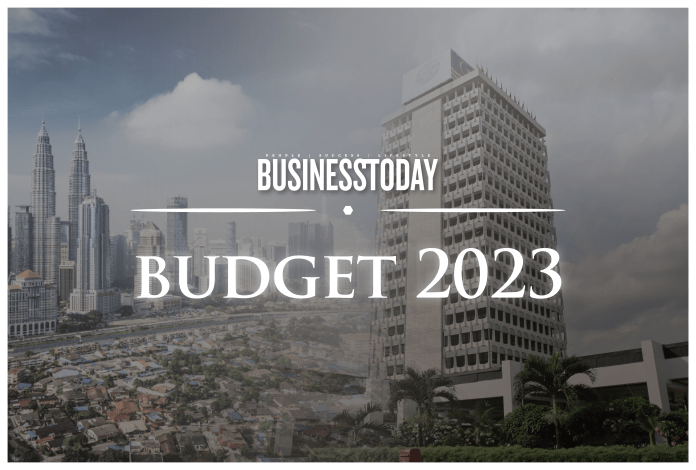RHB Research foresees greater allocations to be channelled towards to certain economic sectors in the upcoming Budget 2023.
Healthcare
The research house expects Budget 2023 to contain a higher allocation for the healthcare sector, with the bulk of the proceeds channelled towards the nation’s healthcare infrastructure to improve the quality and ensure the affordability of public healthcare services.
The preparedness of the country to welcome medical tourism should be on the MOF’s cards, as we believe budget allocation towards the Malaysia Healthcare Travel Council (MHTC) (2022: MYR20m; 2021: MYR35m) will be higher than that of last year following the re-opening of cross-border travel since April.
Following Malaysia’s transition to endemicity, a tax relief of up to MYR1,000 in relation to COVID-19 screening will likely be discontinued or reduced. Apart from that, there is a proposal from the Association of Private Hospitals Malaysia (APHM) to increase public healthcare expenditure to 5% of GDP, from 2.6% currently.
The key initiative is to increase the adoption of digital technology applications on healthy lifestyle intervention, and at the same time strengthen private-public healthcare collaborations.
While the 5% target may still look ambitious at this point, RHB reseach believes the budget allocation for healthcare should gradually ramped up to be aligned with the 12th Malaysia Plan (12MP) initiative, in strengthening the nation’s healthcare system and improving its readiness to facilitate an aging population by 2044.
Utilities
We believe Budget 2023 will continue to emphasise on the energy transition, with more ESG-friendly measures being implemented. Tenaga Nasional (TNB MK, NEUTRAL, TP: MYR9.00) has proposed tax incentives for charging point operators, tax rebates and exemptions for fully imported goods vehicles and buses until 2026 to assist fleet companies in purchasing EVs, and the removal of the floor price for CBU imports (currently MYR250,000) to allow more foreign affordable vehicles until 2026.
Meanwhile, based on our channel checks, tax incentives for residential solar power and new technology (i.e. battery storage) are some of the items on the wish lists of solar power players. Apart from this, some companies are hoping that the government will lower the Sales and Services Tax (SST) as well as the import tax on solar parts.
Automotive
What is in store for the auto sector?
Given that Budget 2023 could include ESG-focused development programmes and projects, we think that in addition to providing greater clarity on excise duty reform, the MOF may provide incentives to expedite the production and adoption of EVs in Malaysia.
Note that EV-related incentives are unlikely to meaningfully impact equity prices in the sector, but may brighten the outlook for companies with more EV offerings, such as Sime Darby (SIME MK, BUY, TP: MYR2.55) and Bermaz Auto (BAUTO MK, BUY, TP: MYR2.35).
Greater clarity on excise duty reform. Currently, the excise duty reform is meant to take effect in 2023. The Malaysian Automotive Association estimates that this could raise car prices by 8-20%.
To recap, the excise duty reform was introduced by the Pakatan Harapan administration in Jan 2020, but its implementation was postponed to after end-2020, and again, to after end-2022.
The reform would change the definition of a vehicle’s open market value (OMV) to include the profits and expenses incurred during not only manufacturing, but also the sale process.
Currently, industry players are uncertain about whether this reform will be implemented in 2023.
Hence, we believe the Ministry of Finance (MOF) will provide greater clarity on the policy. As this is a pre-election budget, and because the reform will likely be unpopular, we think it could be further postponed.
RHB Research believes that, currently, the excise duty reform has yet to be factored in the implementation of incentives to spur EV charging as the lack of EV charging infrastructure is among the key impediments of EV adoption becoming more widespread in Malaysia.
They expect Budget 2023 may include incentives to spur the installation of EV charging – which should then partially expedite the adoption of EVs. Currently, there are incentives for individuals for the purchase, installation, rental, lease, and subscription for EV charging until the end of 2023 – but none to encourage corporations to install EV chargers in public spaces. Incentives to spur original equipment manufacturers’ (OEM) local assembly of EVs could also be on the table.
However, given the lack of EV sales volumes in Malaysia in the near future, OEMs may not be compelled to locally assemble EVs just for the Malaysian market.
Therefore, we believe that the incentives should also encourage the export of locally assembled EVs. This would not only help boost local EV adoption, but also support the Government’s vision for the Automotive Hi-Tech Valley to be the ASEAN hub for EV manufacturing and component supplies.
Longer tax-free period for purchase of EVs. Currently, CBU EVs are exempt from import and excise duties until end-2023, and CKD EVs until end-2025.
However, given that:
i) There are limited choices of EVs in Malaysia, and a lack of affordable EV models;
ii) there is very limited supply of CBU EVs to the Malaysian market; and
iii) there are limited CKD EVs, and any setting up of local assembly may take some time, only a handful of premium EV buyers can benefit from the existing tax-free period.
As such, the trading house gathered from industry executives that there should be a longer tax-free period for the purchase of both CKD and CBU EVs.
Should the tax-free period be extended for a few more years, we believe that with more affordable EVs options in the coming years, more buyers (including those in the B40 and M40 groups) would be able to take advantage of the tax break.
Unlikely to hear anything on the end-of-life vehicle (ELV) management policy.
While the government is studying a suitable approach to implement the ELV management policy, RHB thinks that such an unpopular policy will unlikely be implemented in Budget 2023. Besides, Malaysia currently lacks the capability to assess the roadworthiness of its many vehicles.









